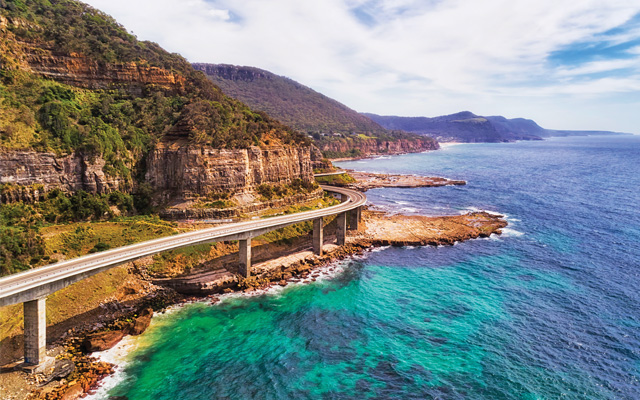Sustainable commitments by government agencies and private sector players are showing throughout Asia-Pacific’s travel and tourism industry, find TTG reporters

New South Wales pushes sustainable road trips
Australia’s Destination New South Wales (NSW) has launched a new marketing campaign, Recharge Here, that promotes electric vehicle (EV)-friendly road trips across the state in support of the sustainable growth of regional visitor economies.
The campaign features nine EV-friendly road trips in Greater Sydney and regional NSW. Some of these itineraries include Central Coast and Hunter Valley, a U-shaped 257km trip from Newcastle to Maitland; Grand Pacific Drive – a 200km journey along the coastline from Sydney to Jervis Bay; and Greater Blue Mountains Drive, a 283km round trip from Sydney to the Blue Mountains.
The itineraries also identify the locations of EV charging stations along the routes so that drivers can enjoy their journey without range anxiety.
Each road trip has its own webpage, which breaks the itinerary into stages and shows the EV charging options along the route, alongside visitor experience recommendations.
Recharge Here is developed as an extension of Destination NSW’s Feel New brand, and highlights the accessibility of the state’s stunning natural beauty and vibrant cultural experiences through EV infrastructure.
The NSW government is investing A$199 million (US$126 million) to support the installation of thousands of publicly available EV charge ports across the state. This includes ultra-fast charging stations, destination and kerbside chargers.
Funding has been awarded for more than 3,000 charge ports at more than 1,100 sites, with many more to come.
Minister for roads and tourism John Graham said: “NSW offers world-class road trips along magnificent coastlines, beautiful countryside and stunning alpine ranges. These new EV chargers will mean all drivers can enjoy these epic journeys.
“The installation of EV chargers across regional NSW ensures our regional visitor economies can attract the growing number of EV drivers.”
Minister for climate change and energy Penny Sharpe added: “We are committed to making the state a leader in electric vehicle adoption and sustainable tourism.
“Driving electric is not only better for the environment, but it’s also the most budget-friendly way to hit the road. Lower running costs means EVs offer significant savings for drivers.”
Marketing EV-friendly road trips aligns with a recommendation in the NSW Visitor Economy Strategy review to position NSW as a leader in sustainable tourism through initiatives such as the development and promotion of EV experiences. – Karen Yue
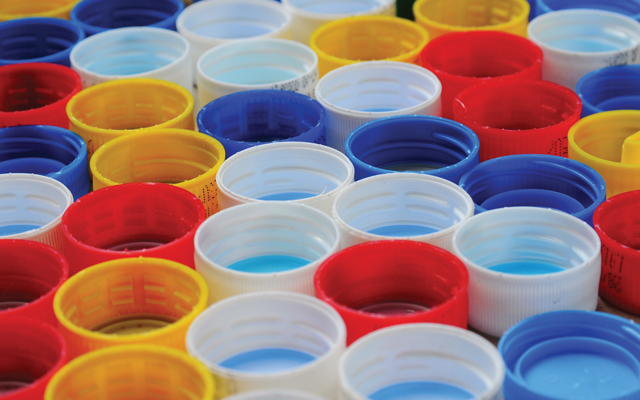
Orix focuses on responsible consumption
Tokyo-based Orix Hotel Management Corporation, which operates a variety of onsen resorts, hotels and training facilities across Japan, promotes sustainable tourism at 22 of its directly operated properties.
Part of its Tsunagu-Hagukumu Tourism (Connecting Tourism) Project, the efforts aim to support the United Nations Sustainable Development Goals 8, 12 and 14: Decent Work and Economic Growth, Responsible Consumption and Production, and Life Below Water.
The long-term goal, according to Orix, is for the company’s actions to help “ensure that the world will remain a place where people can enjoy travel and tourism even 100 years from now”.
In 2024, under the project theme, Save the Sea, accommodation under the group served breakfast featuring fish skin and leftover kelp, which would normally be discarded, to highlight the importance of reducing food waste and food loss.
Properties also rolled out initiatives to promote recycling and upcycling of plastic waste. A collaboration was arranged with aquariums in Tokyo and Kyoto to accept marine plastic waste collected through their sustainable activities, which was added to plastic waste generated on premises to create decorative items in common areas. These creations included wall clocks, and pens that were used in conjunction with message boards designed to stimulate conversations among guests about sustainability.
Guests were also encouraged to donate caps from their PET bottles, which were in turn made into accessories and sold in the aquariums to raise awareness about the importance of protecting sea life.
Through guests’ involvement in the project, Orix hopes that “realisations gained will bring about even a small change in everyday awareness and behaviour, even after the trip is over and guests return to their daily life”. – Kathryn Wortley
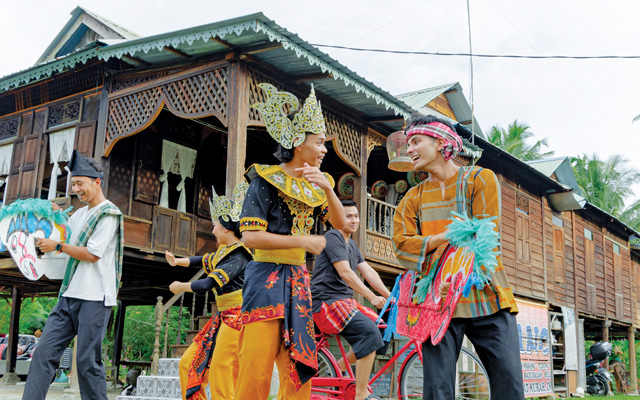
Selangor backs talent investment
The Selangor government, through Tourism Selangor, has allocated 500,000 ringgit (US$111,385) to train up to 80 individuals from the state this year as local tour guides.
The Selangor Community Host training programme, conducted in conjunction with the ongoing Visit Selangor Year 2025 campaign, is the first of its kind. It aims to equip local residents with the skills to share stories of their area’s history, heritage, and culture with both local and international visitors, said Tourism Selangor’s CEO, Chua Yee Ling.
It is designed to create job opportunities while boosting the local economy, particularly within the tourism sector.
In the long run, the Selangor state government seeks to build a strong network of well-trained community hosts across the state, reinforcing Selangor’s position as a leading destination for cultural and heritage tourism.
Chua shared: “This specialised programme equips participants with the skills needed to serve as tour guides in their respective hometowns, ensuring they can provide visitors with engaging and insightful experiences. With inclusivity as a core principle, the initiative supports sustainable tourism growth and development.
“The six-month training programme covers a range of essential topics, including tourist behaviour and consumption psychology, tourism market trends, fundamental tourism theories, on-site training at the destination on local culture, and heritage experiences and package development.”
Upon graduation, local guides will obtain a badge that allows them to earn an income by conducting guiding services in their district as well as to work closely with product owners and other stakeholders in their district.
This programme, which has the support of the Ministry of Tourism, Arts and Culture Malaysia, will be closely monitored by the Selangor state government to ensure its effectiveness in enhancing community-based tourism and generating economic opportunities for local residents.
Tourism Selangor will also work closely with Empire Putra College to assess the progress of participants, ensuring they acquire the necessary skills to deliver high-quality guided experiences. Regular evaluations and feedback sessions will be conducted to refine the training module and address emerging tourism trends.
Successful graduates will have opportunities to collaborate with tourism operators, heritage sites, and local businesses, further strengthening Selangor’s tourism ecosystem.
The initiative also aims to foster deeper engagement between tourists and local communities, providing authentic experiences that highlight Selangor’s diverse cultural and natural attractions. – S Puvaneswary
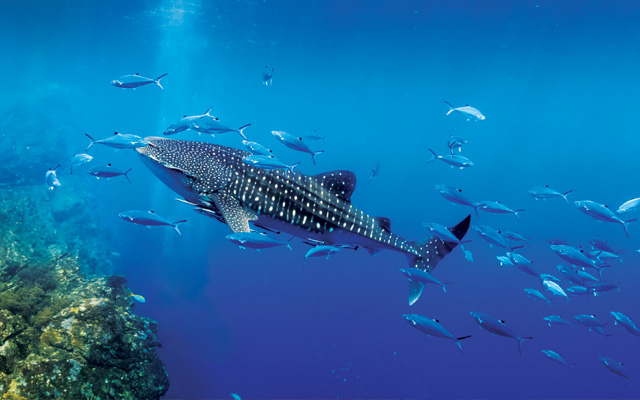
Better protectors of whale sharks
The Maldives’ government has updated its marine conservation regulations to enhance the experience for tourists interacting with whale sharks in the destination while safeguarding the vital ecosystem that supports whale sharks in their natural habitat.
Key provisions include maintaining a minimum distance of three metres from the body and four metres from the tail of whale sharks. Touching or swimming alongside them while holding on is strictly prohibited.
Additionally, interactions must be approached calmly and quietly, with movement limited to the sides of the whale sharks to avoid chasing or obstructing their natural path.
The regulation prohibits feeding whale sharks and restricts the use of flash photography, selfie sticks, and bright lights during interactions. Aerial photography guidelines dictate that drones must be operated at least 30m above sea level and within the operator’s line of sight. It also designates a 250m contact zone around whale sharks, allowing only three vessels at a time, enforcing a speed limit of five knots per hour, and reducing to two knots within 50m of the whale shark.
Furthermore, the government has enforced propeller guards on all excursion boats touring areas beyond South-Ari Marine Park (SAMPA), where whale shark activity is observed. SAMPA is a world-renowned for having whale shark sightings all year round.
Special speedboats patrol areas with whale shark activity to monitor vessels that take tourists to these sites.
Prior to these regulatory updates, minister of climate change, environment, and energy, Thoriq Ibrahim, said more than 100 tourists would swim after a single whale shark.
“(There was) no set policy – even speedboats ventured into this area,” he stated.
“By mandating propeller guards, we are taking a significant step towards ensuring the safety of both whale sharks and those who admire them. This measure reflects our commitment to sustainable tourism and the preservation of our marine environment,” added Ibrahim Shiuree, CEO and managing director of Visit Maldives.
Emergency protocols are also established for vessels now, ensuring that whale sharks are not obstructed or disturbed during their natural behaviours.
In the event of encountering an injured or entangled whale shark, the regulation provides clear directives to follow, including notifying the Environment Protection Agency and ensuring the whale shark’s safe release. – Karen Yue
A greener island
Sentosa Development Corporation (SDC), which oversees the development, management, marketing, and promotion of Singapore’s resort destination Sentosa, attained the gold standard for sustainable tourism, the GSTC Destination Criteria (GSTC-D) of the Global Sustainable Tourism Council (GSTC), in 2022.
While this certification has a three-year lifespan, SDC has chosen to undergo comprehensive annual external audit to ensure that all criteria of the certification are met and maintained. It also regularly shares sustainability best practices and updates with members of the Sentosa Carbon Neutral Network (SCNN), a gathering of island businesses that work together on crucial impact projects, such as decarbonisation and curation of sustainable offerings and experiences, aimed at carbon neutrality by 2030.
Kelly Yoong, divisional director, corporate planning & development, SDC, said: “SDC recognises the transformative power of partnership and collective action in driving meaningful sustainability initiatives. The SCNN has become the key collaboration platform to galvanise sustainability actions on the island, such as the implementation of Sentosa Disposables Policy, Sentosa’s Solarisation Programme, and Sentosa Cares Week. By bringing on board businesses on the island and other industry players, SDC has been able to further hasten adoption and amplify the impact of its initiatives.”
These sustainability efforts are not only kept backstage. SDC has dedicated webpages to raise awareness of its sustainability initiatives and encourage its guests to Play Well, Eat Well, and Travel Well. A carbon calculator is available for Sentosa guests to track their carbon footprint and make conscious choices to reduce their environmental impact.
Sentosa is committed to continued responsible development, with upcoming initiatives encompassing education initiatives for students, the introduction of electric buses along with the necessary infrastructure to support sustainable transport, and creation of spaces for guests with different abilities.
To further encourage sustainable actions, Sentosa will leverage on technology to reward guests for making environmentally-conscious choices during their stay. – Karen Yue
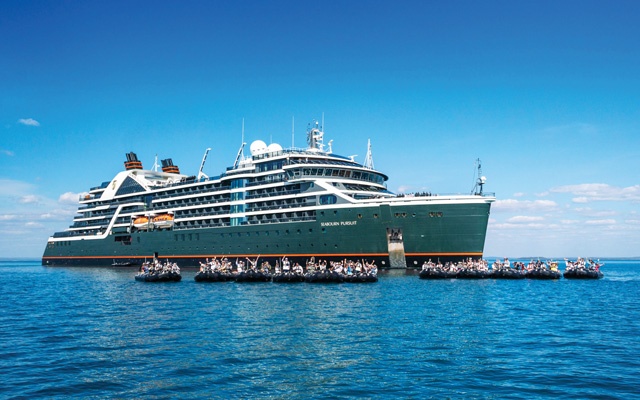
Seabourn spotlights Kimberley’s Traditional Owners
Seabourn Cruise Line has made a landmark contribution to the Wunambal Gaambera Aboriginal Corporation, Traditional Owners of Western Australia’s remote Kimberley region, becoming the first cruise line to name an Aboriginal group as godparents of a ship.
The naming of the Wunambal Gaambera people as godparents of the line’s newest ultra-luxury expedition ship, Seabourn Pursuit, which took place during the ship’s Kimberley voyage in June 2024, marked a symbolic gesture of environmental and cultural stewardship. In practical terms, it supports Wunambal Gaambera’s vision to create a self-sustaining tourism industry.
“It was important to us that our choice of godparent authentically aligned to our brand values and belief in the power of sustainable travel,” said a Seabourn spokesperson. “We’re fiercely committed to safeguarding their heritage for future generations while providing transformational travel experiences.”
Seabourn’s monetary donation, along with funding from Tourism Western Australia and the community’s Uunguu Visitor Pass income, supports the early stages of Ngula Jar Island’s tourism development and contributes to the supply of art materials for year-round commercial arts and craft initiatives for their artists and craft producers.
There are also plans to provide welcome and smoking ceremonies, rock art tours, junba song and dance, as well as art and stories from the Uunguu Rangers looking after the well-being of the country, once Wunambal Gaambera builds more facilities.
“We, the Wunambal Gaambera people, have a communal need and responsibility to look after and prosper from our country,” said Catherine Goonack, chairperson of the Wunambal Gaambera Aboriginal Corporation.
“Seabourn’s monetary contributions assist us to keep our land and sea country healthy, strengthen our Wanjina Wunggurr culture, and create economic opportunities for our people.”
While Seabourn is one of several tour operators cruising the Kimberley coast, it stands out for its public recognition and funding support of Traditional Owners. The cruise line also works with Dambimangari guides on board during its Kimberley voyages, enriching guest experiences with cultural insights.
Seabourn Pursuit now features Ngula Jar Island on all its Kimberley itineraries, ensuring regular visitation and cultural exchange. – Adelaine Ng
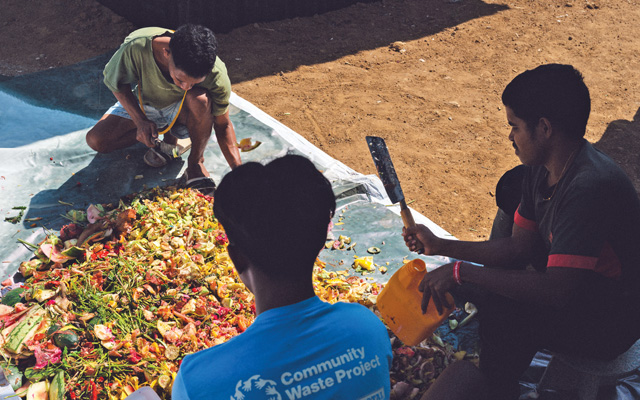
Bali cleans up
A group of businesses in Bali, Indonesia have joined hands to form the Community Waste Project (CWP) last October, an initiative aimed at drastically reducing the island’s landfill waste and setting a new standard for sustainability in the country.
Waste management is particularly serious in Bali, where 1.6 million tonnes of trash is produced each year, including 330,000 tonnes of plastic waste. Hotels and businesses are estimated to contribute around 13 per cent of Bali’s total waste, much of which ends up in landfills.
Due to ineffective waste management, 52 per cent of Bali’s waste is mismanaged and significant amounts of it wind up in rivers and ultimately the ocean, threatening Bali’s ecosystem, the livelihood of its communities, and the tourism industry.
Spearheaded by Mexicola Group, Potato Head Family, and Total Bangun Persada in collaboration with Brunch Club, Finns, Kynd, Lemongrass, and Peppers Seminyak, a 2,000m² waste facility has opened adjacent to Bali’s largest landfill, Suwung, in Denpasar.
CWP creates a sustainable model for Indonesia’s hospitality sector, reducing environmental impact while transforming waste into valuable products for the industry.
With an initial investment of US$400,000, CWP processes organic, inorganic, and garden waste through advanced sorting, composting, recycling, and upcycling methods. By turning waste into practical products for the hospitality industry, such as compost and upcycled plastic panels, the facility aims to create a circular economy model that benefits both the environment and local businesses. – Mimi Hudoyo

